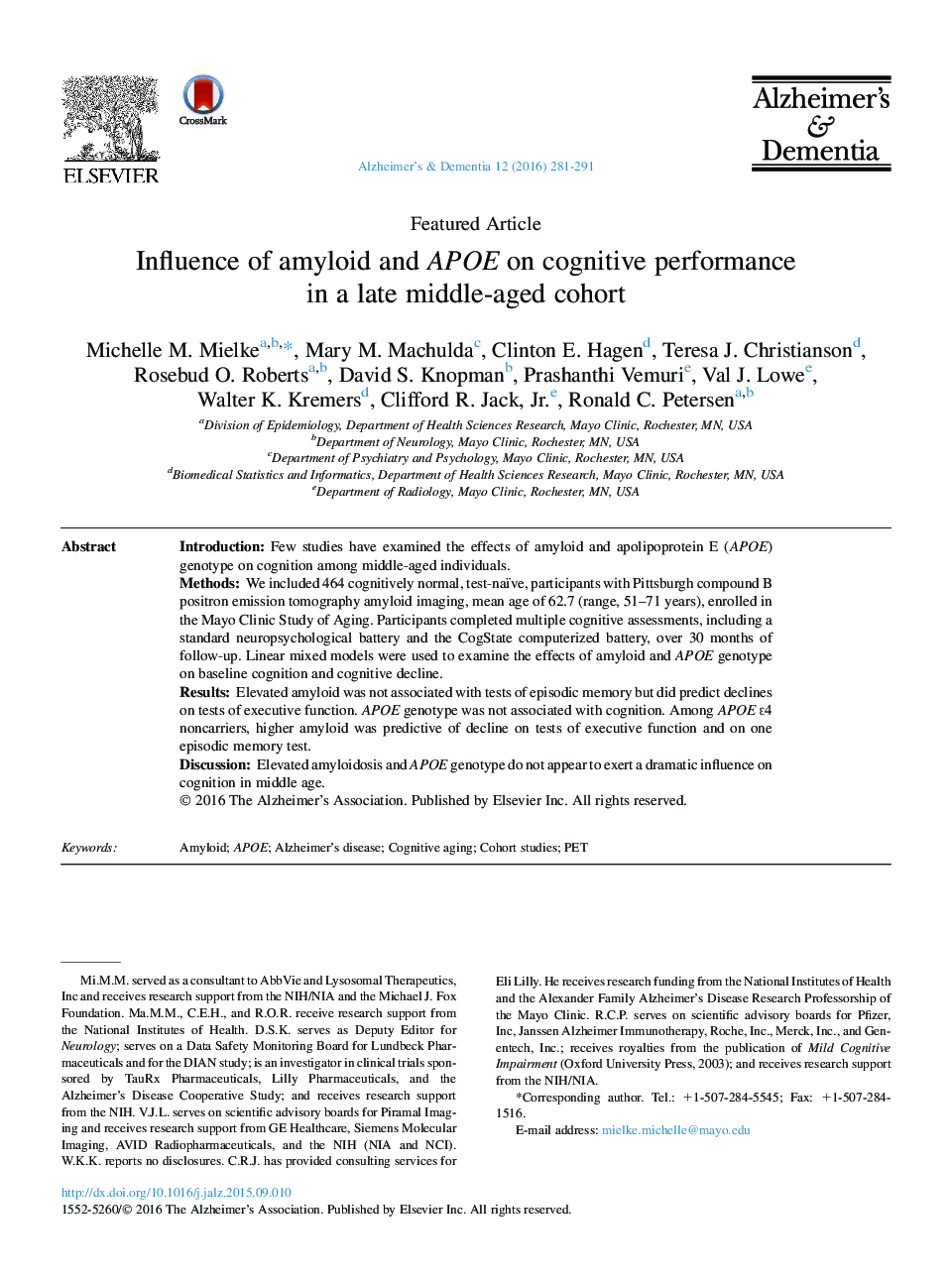| Article ID | Journal | Published Year | Pages | File Type |
|---|---|---|---|---|
| 5622609 | Alzheimer's & Dementia | 2016 | 11 Pages |
IntroductionFew studies have examined the effects of amyloid and apolipoprotein E (APOE) genotype on cognition among middle-aged individuals.MethodsWe included 464 cognitively normal, test-naïve, participants with Pittsburgh compound B positron emission tomography amyloid imaging, mean age of 62.7 (range, 51-71Â years), enrolled in the Mayo Clinic Study of Aging. Participants completed multiple cognitive assessments, including a standard neuropsychological battery and the CogState computerized battery, over 30Â months of follow-up. Linear mixed models were used to examine the effects of amyloid and APOE genotype on baseline cognition and cognitive decline.ResultsElevated amyloid was not associated with tests of episodic memory but did predict declines on tests of executive function. APOE genotype was not associated with cognition. Among APOE É4 noncarriers, higher amyloid was predictive of decline on tests of executive function and on one episodic memory test.DiscussionElevated amyloidosis and APOE genotype do not appear to exert a dramatic influence on cognition in middle age.
